
Richard Turpin was an English highwayman whose exploits were romanticised following his execution in York for horse theft. Turpin may have followed his father's trade as a butcher early in his life but, by the early 1730s, he had joined a gang of deer thieves and, later, became a poacher, burglar, horse thief and killer. He is also known for a fictional 200-mile (320 km) overnight ride from London to York on his horse Black Bess, a story that was made famous by the Victorian novelist William Harrison Ainsworth almost 100 years after Turpin's death.

A highwayman was a robber who stole from travellers. This type of thief usually travelled and robbed by horse as compared to a footpad who travelled and robbed on foot; mounted highwaymen were widely considered to be socially superior to footpads. Such criminals operated until the mid- or late 19th century. Highwaywomen, such as Katherine Ferrers, were said to also exist, often dressing as men, especially in fiction.
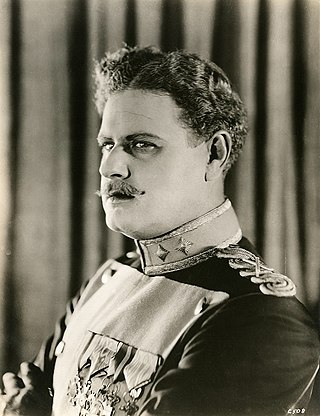
Alan Hale Sr. was an American actor and director. He is best remembered for his many character roles, in particular as a frequent sidekick of Errol Flynn, as well as films supporting Lon Chaney, Wallace Beery, Douglas Fairbanks, James Cagney, Clark Gable, Cary Grant, Humphrey Bogart, and Ronald Reagan. Hale was usually billed as Alan Hale and his career in film lasted 40 years. His son, Alan Hale Jr., also became an actor and remains most famous for playing "the Skipper" on the television series Gilligan's Island.

Wilfred Van Norman Lucas was a Canadian American stage actor who found success in film as an actor, director, and screenwriter.

Thomas J. Moore was an Irish-American actor and director. He appeared in at least 186 motion pictures from 1908 to 1954. Frequently cast as the romantic lead, he starred in silent movies as well as in some of the first talkies.

Dick Turpin is a British television drama series starring Richard O'Sullivan and Michael Deeks. It was created by Richard Carpenter, Paul Knight and Sydney Cole and written by Richard Carpenter, John Kane, Charles Crichton and Paul Wheeler. It was made by Gatetarn, Seacastle productions in-association with London Weekend Television between 1979 and 1982. 26 half-hour episodes and one feature-length episode were filmed on location at Maidenhead in Berkshire, England.

Noble Johnson, later known as Mark Noble, was an American actor and film producer. He appeared in films such as The Mummy (1932), The Most Dangerous Game (1932), King Kong (1933) and Son of Kong (1933).

Fay Holderness was an American vaudeville performer and film actress.
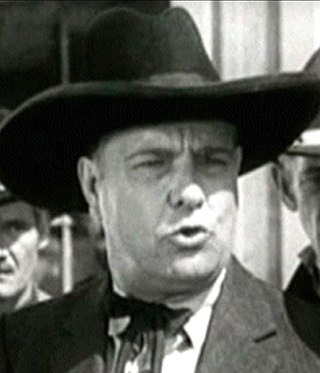
Edward J. Peil Sr. was an American film actor. He appeared in more than 370 films between 1913 and 1951.

Warner Richmond was an American stage and film actor. He began his career as a stock theatre actor and appeared in films in both the silent film and sound eras. His career spanned four decades. He is possibly best recalled for appearances in Westerns in his later career in sound films. Between 1912 and 1946, he appeared in more than 140 films.
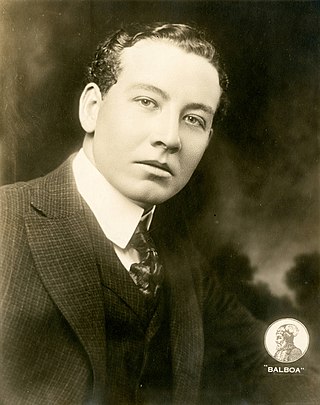
Philo McCullough was an American actor. He appeared in more than 250 films between 1914 and 1969. He was born in San Bernardino, California, and died in Burbank, California.
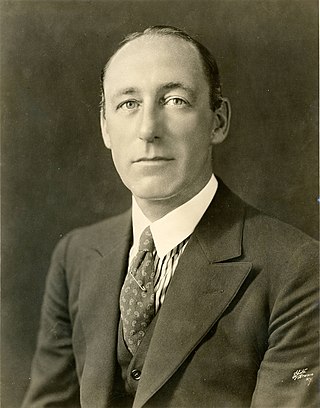
Francis Lumsden Hare was an Irish-born film and theatre actor. He was also a theatre director and theatrical producer.
Dick Turpin is a 1933 British historical drama film directed by Victor Hanbury and John Stafford it starred Victor McLaglen, Jane Carr, Frank Vosper, James Finlayson and Cecil Humphreys. The film depicts the adventures of the eighteenth century highwayman Dick Turpin and his legendary ride to York. It is based on a historical novel by Harrison Ainsworth.

Rookwood is a novel by William Harrison Ainsworth published in 1834. It is a historical and gothic romance that describes a dispute over the legitimate claim for the inheritance of Rookwood Place and the Rookwood family name.
Dick Turpin's Ride to York is a 1922 British historical silent film drama directed by Maurice Elvey and starring Matheson Lang, Isobel Elsom and Cecil Humphreys. It was the first feature-length film of the story of the famous 18th-century highwayman Dick Turpin and his legendary 200 mi (320 km) overnight ride from London to York on his mount Black Bess.
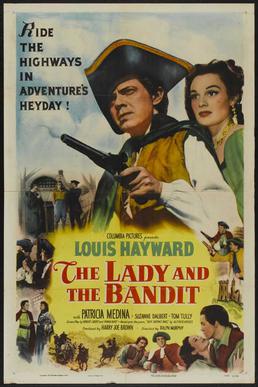
Dick Turpin's Ride is a 1951 American adventure film directed by Ralph Murphy and starring Louis Hayward. It follows the career of the eighteenth century highwaymen Dick Turpin. It is based on the poem Dick Turpin's Ride by Alfred Noyes.
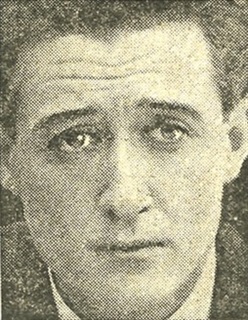
James Knight was a British actor. Born in Canterbury, Kent and starting as a wrestler, he became a leading man in British silent films, and later a character actor in smaller film roles.

Riders of the Purple Sage is a 1925 American silent Western film directed by Lynn Reynolds and starring Tom Mix, Mabel Ballin, and Warner Oland. Based on the 1912 novel Riders of the Purple Sage by Zane Grey, the film is about a former Texas Ranger who pursues a corrupt lawyer who abducted his married sister and niece. His search leads him to a remote Arizona ranch and the love of a good woman.
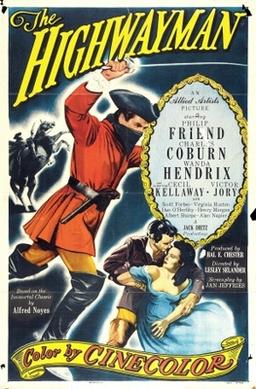
The Highwayman is a 1951 American historical adventure film directed by Lesley Selander and starring Philip Friend, Wanda Hendrix and Cecil Kellaway. The film was shot in Cinecolor and distributed by Allied Artists, the prestige subsidiary of Monogram Pictures. It was based on the poem of the same name by Alfred Noyes.

Kathleen Myers was an American film actress of the silent era.


















